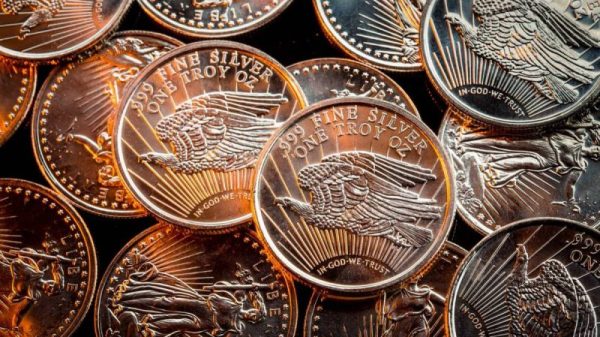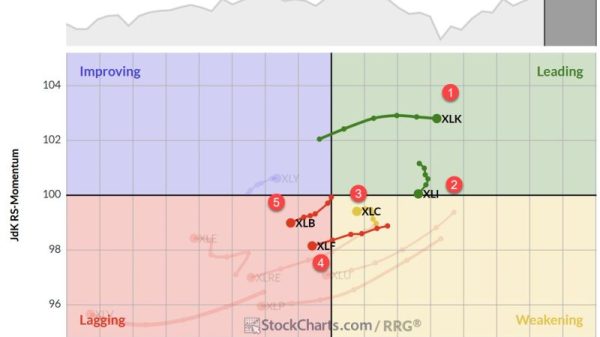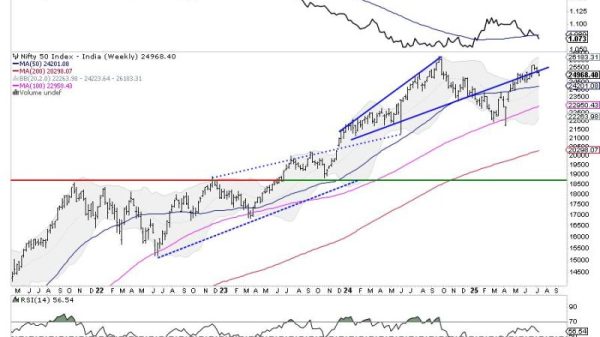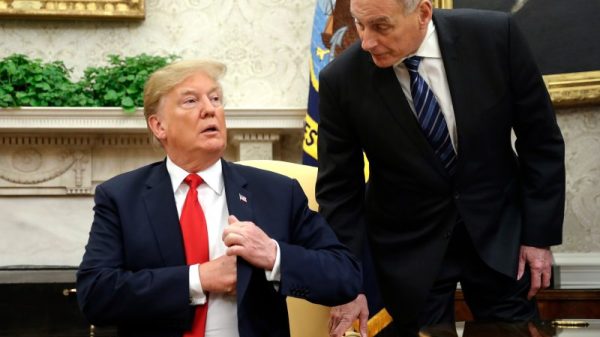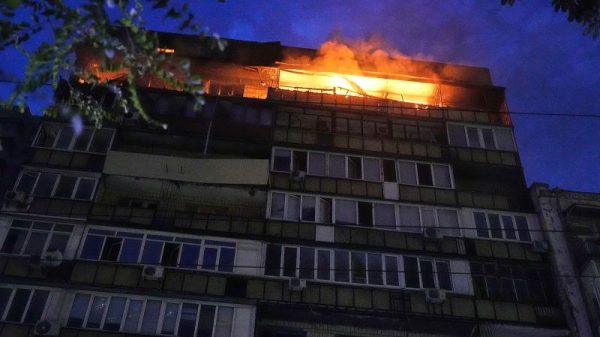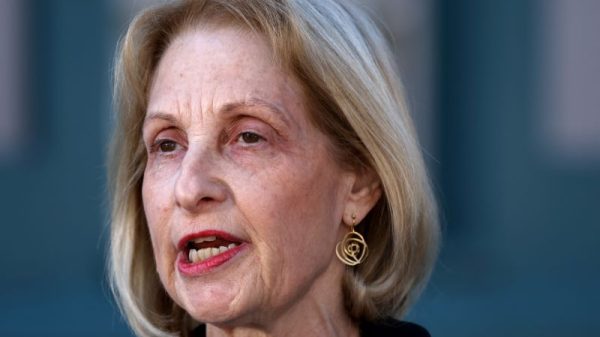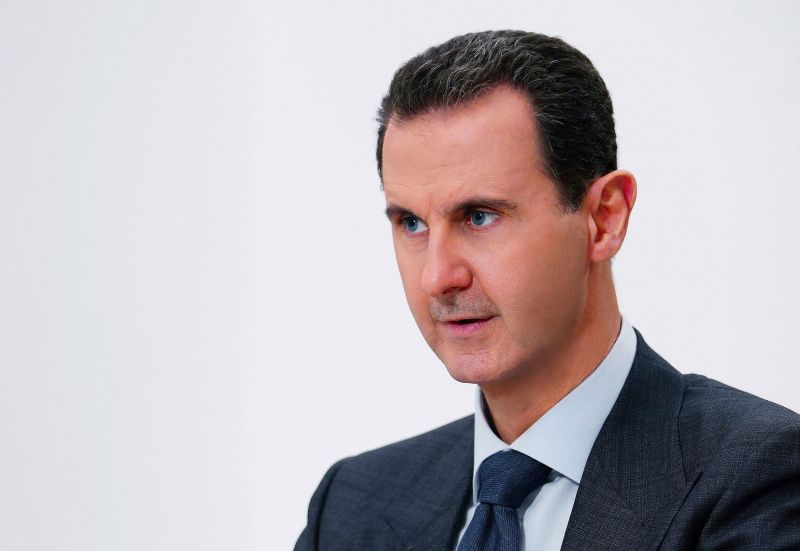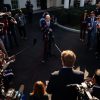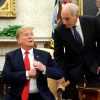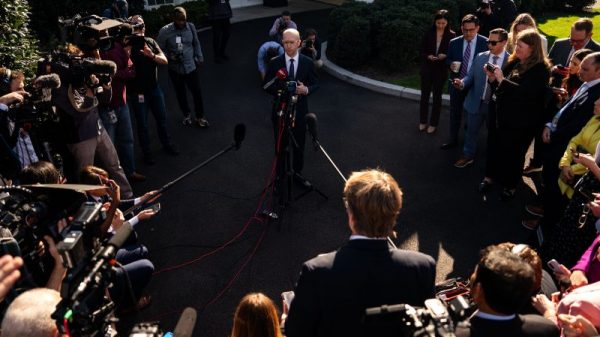Syria’s iron-fisted leader Bashar al-Assad is the second generation of an autocratic family dynasty that held power for more than five decades and his disappearance amid a lightning rebel advance signals an astonishing reordering of power in a strategically vital Middle Eastern nation.
Assad is known for a brutal rule over Syria, which since 2011 has been devastated by a civil war that ravaged the country and turned it into a breeding ground for extremist group ISIS, while sparking an international proxy war and refugee crisis that saw millions displaced from their homes.
War began after Assad’s regime refused to bow to mass pro-democracy protests that year during the Arab Spring, instead mounting a brutal crackdown on the peaceful movement – killing and jailing thousands in the first few months alone.
Assad’s forces have since been accused of severe human rights violations and brutal assaults against civilians throughout the 13-year war, including the use chemical weapons against their own people. The United States, Jordan, Turkey and the European Union at the war’s start all called for Assad to step down.
But the heavily Western-sanctioned and internationally isolated regime has clung to power until now thanks to the backing of powerful allies Russia and Iran, and a merciless campaign against opposition.
Assad comes to power
Assad took power in an unopposed election in 2000 following the death of his father Hafez al-Assad, who rose from poverty to lead the Baath Party and seized power in 1970, becoming the country’s president the following year. The younger Assad grew up in the shadow of his father, a Soviet ally who ruled Syria for three decades and helped propel a minority Alawite population to key political, social and military posts.
Like the son who succeeded him, Hafez al-Assad tolerated little dissent with oppression widespread and periodic bouts of extreme state violence. In 1982 in the city of Hama – which rebels seized earlier this week – Hafez al-Assad had his army and intelligence services slaughter thousands of his opponents, ending an uprising led by the Muslim Brotherhood.
As a second son not poised to take up his father’s mantle, Assad studied ophthalmology in London until his older brother Bassel, who had been groomed to succeed Hafez, died in a car crash in 1994. Bashar al-Assad was then thrust into the national spotlight and studied military science, later becoming a colonel in the Syrian army.
After his father’s death in June 2000, it took just hours for the Syrian parliament to change the constitution to lower the presidential age of eligibility from 40 to Assad’s age at the time of 34, a move that allowed him to succeed his father after opposition-less elections the following month.
Many observers in Europe and the United States seemed heartened by the incoming president, who presented himself as a fresh, youthful leader who might usher in a more progressive, moderate regime.
Assad’s wife, Asma al-Assad, whom he married in 2000, a former investment banker of Syrian descent who grew up in London, helped burnish that view.
But Western hopes of a more moderate Syria sank when the new leader promptly maintained his country’s traditional ties with militant groups, such as Hamas and Hezbollah. They then turned to outright condemnation of the regime after he met the 2011 pro-democracy groundswell with brutal force.
In May 2011, then US President Barack Obama said Assad’s regime had “chosen the path of murder and the mass arrests of its citizens” and called on him to lead a democratic transition “or get out of the way.”
Assad has been re-elected by sweeping majorities every seven years, most recently in 2021 in what the US, UK, France, Germany and Italy deemed a “fraudulent election.”
Civil war
Assad’s forces were known for brutal tactics during the civil war that ensued after the crackdown on 2011 pro-democracy protests, when an armed opposition made up of small organic militias and some defectors from the Syrian military formed.
On 2013, UN weapons inspectors returned “overwhelming and indisputable” evidence of the use of nerve gas in Syria. Then UN Secretary-General Ban Ki-moon called the August 21 attack described in the report, which took place in the Damascus suburbs, “the worst use of weapons of mass destruction in the 21st century.”
The United States said that attack may have killed more than 1,400, including hundreds of civilians. Syrian officials have repeatedly denied allegations of war crimes and crimes against humanity.
The attack and others galvanized world powers to work to dismantle the regime’s chemical arsenal and pushed the US in 2013 to up its support for Syrian opposition forces, following what Washington said was the crossing of a “red line.”
Assad warned Western nations against supporting rebel groups battling his armed forces, predicting the militants would one day strike against the US and others. Later, in 2015 the leader said Syria wouldn’t join a US-led coalition focused on destroying terror group ISIS, which took control of parts of the war-torn country during the war.
The conflict is now a cornerstone of Assad’s brutal legacy, leaving hundreds of thousands of dead, and what the United Nations earlier this year said was more than 7 million internally displaced and over 6 million international refugees.

